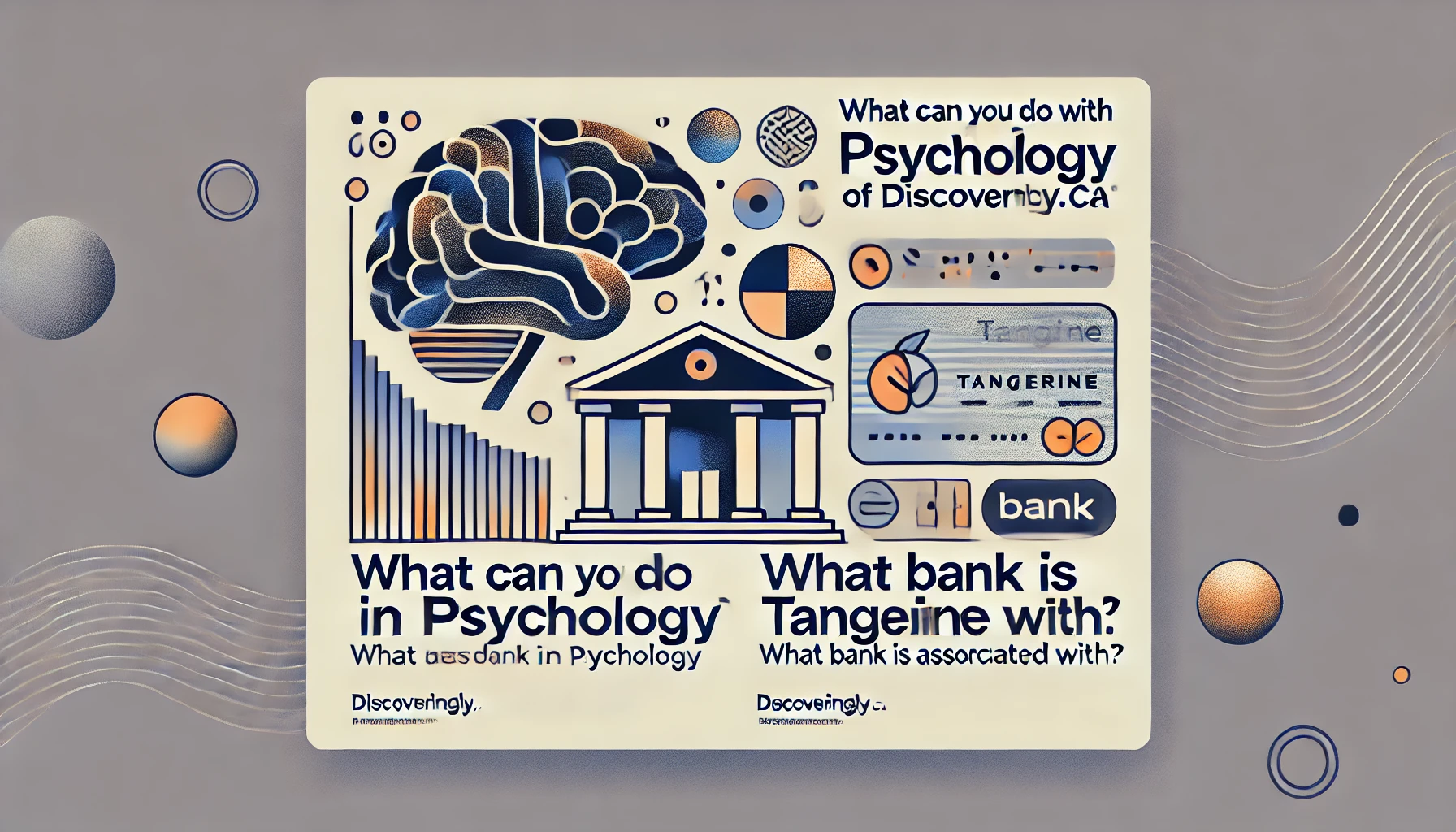What Can You Do with a Master’s in Psychology? Unlocking Career Opportunities
Introduction
A Master’s in Psychology is a versatile degree that offers a gateway to various career paths across mental health, research, education, business, and more. While a doctoral degree is often required for clinical psychologist roles, a master’s degree provides the knowledge and skills to excel in several fields, ranging from counseling and therapy to organizational consulting. This article delves into what you can do with a Master’s in Psychology, exploring its applications, benefits, and career potential.
What Is a Master’s in Psychology?
A Master’s in Psychology is a graduate-level program designed to deepen your understanding of human behavior, cognitive processes, and emotional well-being. It blends theoretical knowledge with practical skills, preparing graduates to work in specialized fields or pursue further education.
Key Features:
- Duration: Typically 1–2 years, depending on full-time or part-time enrollment.
- Specializations:
- Clinical Psychology
- Industrial-Organizational Psychology
- Educational Psychology
- Forensic Psychology
- Outcome: Equips graduates for roles in mental health, education, business, and research.
Career Opportunities with a Master’s in Psychology
A Master’s in Psychology opens doors to diverse industries and roles. Here are some of the most popular career paths:
1. Counseling and Therapy
Graduates can work in roles that involve providing mental health support, guidance, and therapeutic services.
- Roles:
- Mental Health Counselor
- Marriage and Family Therapist (additional licensure may be required)
- Addiction Counselor
- Work Settings:
- Private practices
- Community health centers
- Rehabilitation facilities
- Key Skills:
- Active listening, empathy, and creating treatment plans tailored to individual needs.
2. Research and Academia
For those passionate about psychological research, academia offers fulfilling roles in advancing the science of human behavior.
- Roles:
- Research Assistant
- Behavioral Scientist
- Psychology Instructor (community colleges or as a teaching assistant in universities)
- Work Settings:
- Universities
- Research organizations
- Government agencies
- Key Skills:
- Research design, data analysis, and academic writing.
3. Industrial-Organizational Psychology
Psychologists specializing in workplace behavior help organizations improve productivity, employee satisfaction, and overall performance.
- Roles:
- Human Resources Consultant
- Organizational Development Specialist
- Talent Management Advisor
- Work Settings:
- Corporations
- Consulting firms
- Nonprofits
- Key Skills:
- Leadership development, employee assessment, and workplace motivation.
4. Educational and School Psychology
Psychology graduates can support students, educators, and administrators in improving learning outcomes and addressing behavioral challenges.
- Roles:
- School Counselor
- Educational Consultant
- Learning Specialist
- Work Settings:
- Schools and universities
- Educational agencies
- Tutoring organizations
- Key Skills:
- Understanding developmental psychology and implementing intervention strategies.
5. Healthcare and Social Services
Healthcare settings provide opportunities for psychology graduates to enhance patient care and support community well-being.
- Roles:
- Behavioral Health Specialist
- Case Manager
- Patient Advocate
- Work Settings:
- Hospitals
- Social service agencies
- Nonprofit organizations
- Key Skills:
- Crisis management, patient support, and program coordination.
6. Marketing and Market Research
Psychology’s insights into human behavior are valuable in understanding consumer preferences and improving marketing strategies.
- Roles:
- Market Research Analyst
- Consumer Behavior Specialist
- Advertising Strategist
- Work Settings:
- Advertising agencies
- E-commerce platforms
- Market research firms
- Key Skills:
- Analyzing trends, interpreting data, and developing customer-focused strategies.
Advantages of a Master’s in Psychology
Earning a Master’s in Psychology provides several benefits that enhance both personal and professional development:
1. Diverse Career Options
- The degree prepares graduates for roles in healthcare, education, business, and more.
2. Specialization Opportunities
- Allows you to focus on a specific area of interest, such as mental health counseling or organizational psychology.
3. Higher Earning Potential
- Graduates often earn higher salaries compared to those with only a bachelor’s degree.
4. Interpersonal Skills
- Enhances communication, empathy, and analytical skills, which are valuable in any profession.
5. Foundation for Further Study
- Prepares students for doctoral programs in psychology or related fields.
Challenges to Consider
While a Master’s in Psychology offers numerous opportunities, there are challenges to keep in mind:
1. Licensure Requirements
- Some roles, such as clinical psychologists, require additional certifications or a doctorate.
2. Competitive Job Market
- Popular fields like mental health counseling may have high competition for roles.
3. Limited Practice Authority
- Certain areas, like independent clinical practice, may require advanced credentials.
4. Time and Financial Investment
- Completing a graduate program involves significant commitment and resources.
Steps to Maximize Your Career with a Master’s in Psychology
Graduates can take specific steps to enhance their career prospects:
1. Earn Certifications
- Specialized certifications, such as cognitive-behavioral therapy (CBT) or trauma-focused therapy, improve employability.
2. Network with Professionals
- Join organizations like the Canadian Psychological Association (CPA) to build connections and stay updated.
3. Gain Practical Experience
- Internships, volunteer work, or entry-level positions provide hands-on experience.
4. Consider Further Education
- Pursuing a Ph.D. or Psy.D. opens doors to advanced roles in research, academia, and clinical practice.
Real-Life Applications of a Master’s in Psychology
Psychology graduates have excelled in various industries:
- Mental Health Services:
- Counselors making a positive impact on clients’ lives.
- Corporate Leadership:
- Organizational psychologists fostering strong workplace cultures.
- Research Advancements:
- Behavioral scientists contributing to groundbreaking studies.
Frequently Asked Questions
1. Can I become a licensed psychologist with a master’s degree?
- In Canada, licensing typically requires a doctoral degree. However, roles like counselor or therapist may only need a master’s degree with proper certifications.
2. What is the difference between an MA and MSc in Psychology?
- An MA focuses on theoretical and qualitative studies, while an MSc emphasizes research and quantitative methods.
3. What is the average salary for graduates with a Master’s in Psychology?
- Salaries vary by industry and role, typically starting at $50,000 annually, with potential growth based on experience and specialization.
4. Is a Master’s in Psychology worth it?
- Yes, it offers diverse career paths, increased earning potential, and opportunities for professional growth.
5. What industries hire psychology graduates?
- Industries include healthcare, education, corporate, nonprofit, and marketing sectors.
Conclusion
A Master’s in Psychology is a versatile degree that equips graduates with the skills and knowledge to excel in various fields. From counseling and healthcare to business and education, the career opportunities are vast and fulfilling. By exploring specializations, gaining practical experience, and pursuing additional certifications, you can unlock even greater potential and make a meaningful impact in your chosen profession.
For more career insights and expert guidance, visit Discoveringly.ca and take the next step toward achieving your professional goals.






